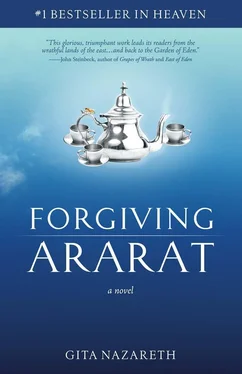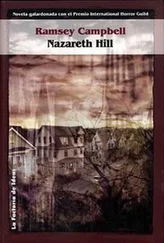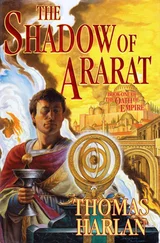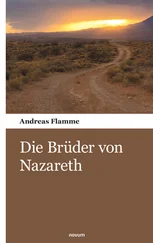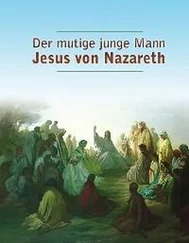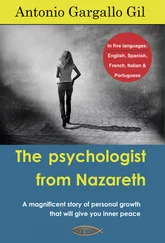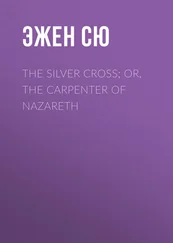He grasped my left elbow and urged me forward, stiffening against the weight of the doors. Entering the station, I immediately sensed a great throng of people milling about in ghostly silence; bodies began brushing against my hips and shoulders, but heeding Luas’ warning, I made no attempt to reach out to them. Even so, halfway through I could no longer resist the temptation to peek beneath the blindfold. What I saw is difficult to describe: the train station was not filled with people but rather their memories : disconnected sensations, emotions, and images arcing through the air like bolts of electricity inside a novelty plasma globe. These were raw memories, not the sanitized recollections we tell each other over cups of coffee or even the more honest accounts we record in our secret diaries, but life itself as experienced and remembered by those who lived it; and because I came into direct contact with these memories without the protective filter of another person’s mind, they became my memories. Suddenly, like a character actor viewing scenes spliced together from a lifetime of films, I found myself reliving the experiences of people whom I had never known but who seemed in a very real sense to be me , remembering events of their lives both minor and momentous, brief and prolonged, moments of numbing boredom and exhilarating excitement, excruciating pain and indescribable pleasure. At one instant, I’m working a sewing machine in a sweat shop in Saipan, the next I’m climbing the catwalk of a grain silo in Kansas City; I’m careening through the streets of Baghdad in the back of a taxi cab, tending the helm of a trawler in stormy seas off Newfoundland, strolling the rows of a vineyard in Australia, driving a front end loader from a mine shaft in Siberia, severing the head of a Tutsi boy with a machete in Rwanda, kissing the neck of a lover in Montreal. I was more than mere spectator. My fingers cramped as the fabric slid beneath the needle, I choked on clouds of dust billowing over the dry wheat, my body leaned as we swerved to avoid a pedestrian crossing the street, I barked orders to my crew on deck and saw the fear in their eyes as the waves crested the bow, I slipped a fleshy red grape into my mouth and savored the tart explosion of juice, I felt the warm spray of blood as I thrust the machete again into the convulsing corpse, I whispered softly while indulging the desires of my lover. Alien memories surfaced in my mind as though I were emerging from a lifetime of amnesia, leaving me confused and lost. Soon Luas strained against another pair of doors and we passed out of the station.
“Are you all right?” he asked as the doors slammed shut behind us.
I was unable to respond, my body trembled.
“Here,” he said, “you may remove the blindfold now, sit.”
We were in a remote, vacant corridor of the train station now and sat down together on a bench. Luas brushed away the hair that had fallen into my eyes and smiled. “I knew you would peek,” he said. “You’re not one to obey rules, even when they benefit you.” He gazed toward the doors through which we had just emerged. “You see them for who they are, Brek Abigail Cuttler. You have the gift.”
I was barely able to understand his words. My memories had merged and deepened into the larger pool of humanity: lives rushed through me in intoxicating bursts of light and sound, joy and horror, the fragments of other lives expanding the life I had remembered in ways both tender and terrifying. It was as though I’d been raised on a desert island without music, books, television, or maps and suddenly been given a glimpse of the world. I wanted to see more; I needed to see more. I got up from the bench and turned toward the doors.
“Not yet,” Luas warned. “It’s too soon. You’re not ready.”
“Who are they?” I asked. “Who am I?” I grasped the door handle.
“No, Brek,” Luas spoke sternly. “You must do exactly as I say or you will lose who you are. Do you understand?”
“Who am I, Luas?” I said, confused and lost. “Or, should I say, who was I?” I pulled on the door.
Luas tugged on the empty right sleeve of my suit jacket, causing me to turn toward him.
“You did it on purpose,” he said, indicating the empty sleeve. “Quite bold, actually. Why, there isn’t a child who hasn’t comforted herself to sleep knowing that if pushed too far she could simply deny her parents what they treasure most of all. Children play the same dangerous game adults play on the tips of ballistic missiles, but unlike adults most children recognize the futility of trying to win by losing. Not you, Brek Cuttler. No, you heard your grandfather’s instruction to stand clear of the conveyor chain as an invitation to trade a pound of your own flesh for the pleasure of the pain on your parents’ faces and the sorrow in their voices.”
It all came back to me, my own darkest secret, never shared. The secret of the princess in Santiago. “How did you know?” I asked.
“I know many things about you, Brek Cuttler,” Luas said.
“Then you know they were getting a divorce,” I said, “and that my mother was an alcoholic and my father hit her and he… You know I thought I’d only get a cut when I reached into the machine and maybe be taken to the hospital for a few stitches, not that I would lose my arm. I just wanted them to listen. I just wanted them to stay together. Is that too much for a child to ask?” I glared at Luas as if he were my own father. “You have no right to judge me,” I said. “I’ve been punished my entire life for the sin of trying to keep my parents together. I’ve more than paid for my crime-if you can call wanting a family a crime. You know many things about me? Do you know about the phantom pains, when you think your arm is hurting even though you don’t have an arm? Do you know what it’s like not to be able to hug another human being because you’re missing an arm to hug them back? Do you know about bathing, dressing, eating, and sleeping with only one hand, and about the jeers of children and the cruelty of adults? Do you know about the awkwardness of every new meeting, about the shattered hopes and dreams? Do you know about clothes with useless right sleeves?”
“All that was forgiven long ago,” Luas replied.
“Forgiven? Really? I don’t remember forgiving anybody.”
“Please, Brek,” he said, “sit down.”
I released the door and sat back down with him on the bench. Two sculptures had been chiseled into the stone wall opposite the bench: one of a Buddhist temple in the foothills of Tibet and the other of a synagogue in the foothills of Mt. Sinai. Luas noticed me looking at them. They seemed out of place in a train station.
“Have you heard of the Book of Life and the Book of Death?” he asked.
I nodded.
“They don’t exist,” he said.
I exhaled in relief, prematurely.
“God doesn’t maintain them. We do. Each one of us. A record of every thought, word, and deed in our lives. The storage is quite perfect, actually; it’s the recall that’s incomplete. Not that this is a defect. Important reasons exist for narrowing the field: forgetting traumatic events helps one cope, and there’s the exquisitely practical need to discard portions of an ever-growing body of experiences to avoid being consumed by them. Memory isn’t the defective tape recording you’ve been led to believe it is; memory is the tape player itself, playing back the tracks of music we select-and sometimes those we don’t. Replayed on the right machine-a high quality machine-the music can be reproduced with great fidelity and precision, nearly as perfect as when it was first produced.”
Although hewn from solid rock, the stone reliefs on the wall metamorphosed as Luas spoke, reworking themselves into brooding animations of viscous stone. Two elevated thrones surrounded by great mounds of crumpled scrolls replaced the temple and the synagogue, in front of which queued long lines of people, naked, their faces erased from their egg shaped bald heads. Thin, fat, young, old, male, female, tall, small, each person carried a scroll, some bulging and heavy and others compact and light. Upon the throne sat an orb like the sun with rays emanating in all directions, and at the foot of the throne stood a robed soul who received the scroll from the next person in line and appeared to read aloud as the parchment unspooled. When the end was reached, the scroll was cast by the reader onto the pile and the bearer disappeared without direction or trace, replaced by the next in line for whom the process was repeated. Luas paused to watch the somber procession.
Читать дальше
